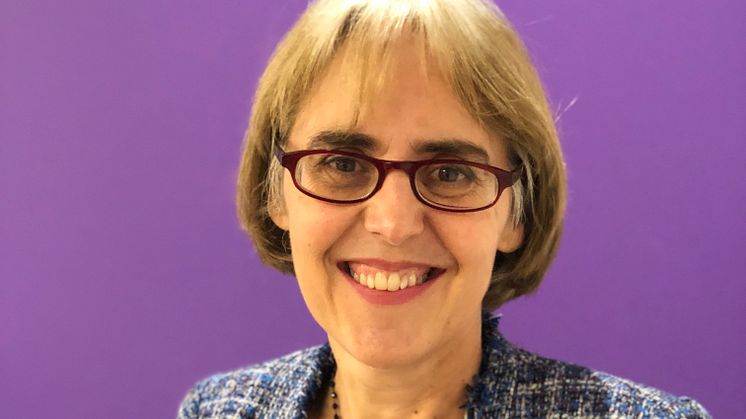
Press release -
Open letter to GPs and healthcare professionals involved in the Covid-19 vaccine rollout
Juliet Bouverie, Chief Executive of the Stroke Association and Professor Rustam Al-Shahi Salman, President of the British Association of Stroke Physicians (BASP) have written to all GPs reminding them of their obligation to offer all stroke survivors a vaccination against Covid-19 as part of rollout to priority group six in the Covid-19 vaccination priority list. If you are a stroke survivor who has been denied access to the vaccine as part of the rollout to priority group six, you can view our statement here and call our Helpline on 0303 3033 100.
Wednesday 10 March 2021
Open letter to GPs and healthcare professionals
With the vaccination programme underway and over 20 million people having now received their first dose, we are hugely encouraged by the rapid progress being made in combating Coronavirus.
However, we are very concerned by recent reports from dozens of survivors of stroke or mini-stroke who should be in Covid-19 vaccination first phase priority group six. They tell us that healthcare professionals are turning them away when they attempt to make an appointment for a vaccination.
Therefore, we ask all GPs and relevant healthcare professionals to adhere to the official priority groups guidance on the vaccine programme and offer a vaccine to all survivors, no matter what type of stroke and mini-stroke. The Joint Committee on Vaccination and Immunisation and Public Health England guidance clearly states that all those who have had a stroke or mini-stroke are in priority group six. These adults must be offered a vaccination. This is true of all strokes, including subarachnoid haemorrhage and mini-stroke (also known as transient ischaemic attack, or TIA for short), which the NHS website makes clear are strokes. Furthermore, this is regardless of when the stroke occurred, or severity of disability.
The rollout of the vaccine to group six in many areas should be good news to stroke survivors. There are 1.2 million stroke survivors living in the UK today and stroke is the leading cause of adult disability. Many of them have been taking extra precautions during the pandemic because they are at a higher risk of a worse outcome after Coronavirus and many have clinical frailties that mean so it's vital they are offered the vaccine.
Despite the guidance, stroke survivors like Erin Losty, 38, from Essex, who appeared in the Stroke Association’s Rebuilding Lives TV advert, was recently told by her GP that she was not in priority group six for the vaccine. Erin explained that she had had a haemorrhagic stroke, also known as a bleed on the brain, but said her doctor did not recognise this as a stroke. Given that haemorrhagic strokes tend to be more fatal, lead to greater levels of disability, and are harder to treat than other types of stroke, it’s vital that there is universal recognition that this is a stroke. If not, then there is a danger that a stroke survivor may not qualify for a vaccine that will reduce their vulnerability to the severe effects of Coronavirus. This is just one of the dozens of concerning stories we are hearing every week.
Having an effective vaccine is the best way to protect the most vulnerable, our friends and our families and will save tens of thousands of lives. We will continue to support stroke survivors seeking to be vaccinated. We encourage them to follow the official guidance, which we have laid out clearly on the Stroke Association website. We hope that healthcare professionals will do the same.
Juliet Bouverie OBE
Chief Executive
Stroke Association
Professor Rustam Al-Shahi Salman
President of the British Association of Stroke Physicians (BASP) and honorary consultant neurologist in Edinburgh
Topics
- Stroke strikes every five minutes in the UK and it changes lives in an instant.
- The Stroke Association is a charity working across the UK to support people to rebuild their lives after stroke. We believe that everyone deserves to live the best life they can after stroke. From local support services and groups, to online information and support, anyone affected by stroke can visit stroke.org.uk or call our dedicated Stroke Helpline on 0303 3033 100 to find out about support available locally.
- Our specialist support, research and campaigning are only possible with the courage and determination of the stroke community and the generosity of our supporters. With more donations and support, we can help rebuild even more lives.
- You can follow us on Twitter, Facebook and Instagram.











